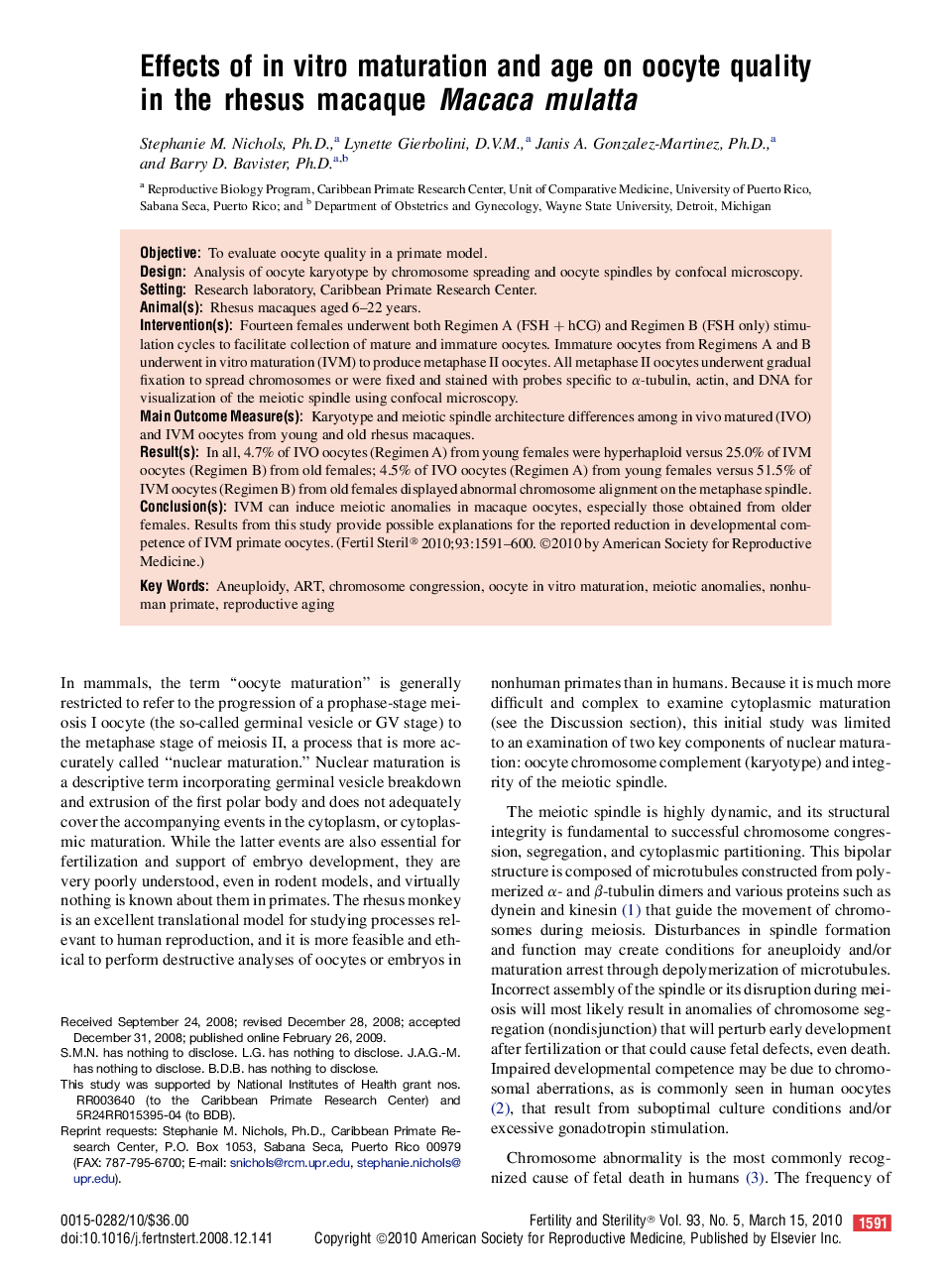| Article ID | Journal | Published Year | Pages | File Type |
|---|---|---|---|---|
| 3938239 | Fertility and Sterility | 2010 | 10 Pages |
ObjectiveTo evaluate oocyte quality in a primate model.DesignAnalysis of oocyte karyotype by chromosome spreading and oocyte spindles by confocal microscopy.SettingResearch laboratory, Caribbean Primate Research Center.Animal(s)Rhesus macaques aged 6–22 years.Intervention(s)Fourteen females underwent both Regimen A (FSH + hCG) and Regimen B (FSH only) stimulation cycles to facilitate collection of mature and immature oocytes. Immature oocytes from Regimens A and B underwent in vitro maturation (IVM) to produce metaphase II oocytes. All metaphase II oocytes underwent gradual fixation to spread chromosomes or were fixed and stained with probes specific to α-tubulin, actin, and DNA for visualization of the meiotic spindle using confocal microscopy.Main Outcome Measure(s)Karyotype and meiotic spindle architecture differences among in vivo matured (IVO) and IVM oocytes from young and old rhesus macaques.Result(s)In all, 4.7% of IVO oocytes (Regimen A) from young females were hyperhaploid versus 25.0% of IVM oocytes (Regimen B) from old females; 4.5% of IVO oocytes (Regimen A) from young females versus 51.5% of IVM oocytes (Regimen B) from old females displayed abnormal chromosome alignment on the metaphase spindle.Conclusion(s)IVM can induce meiotic anomalies in macaque oocytes, especially those obtained from older females. Results from this study provide possible explanations for the reported reduction in developmental competence of IVM primate oocytes.
